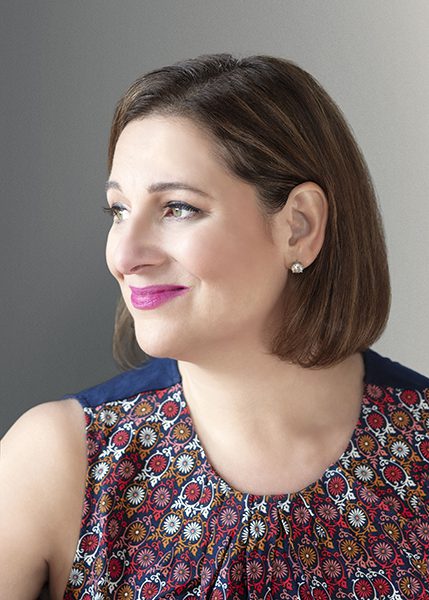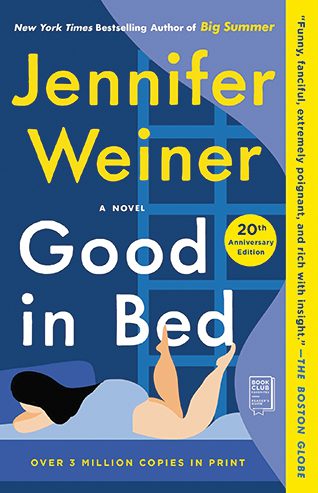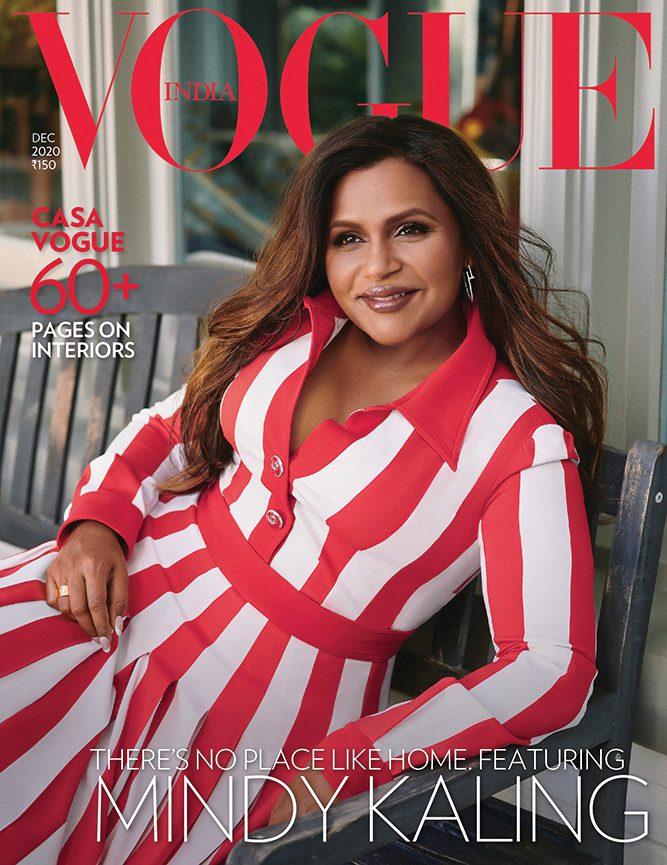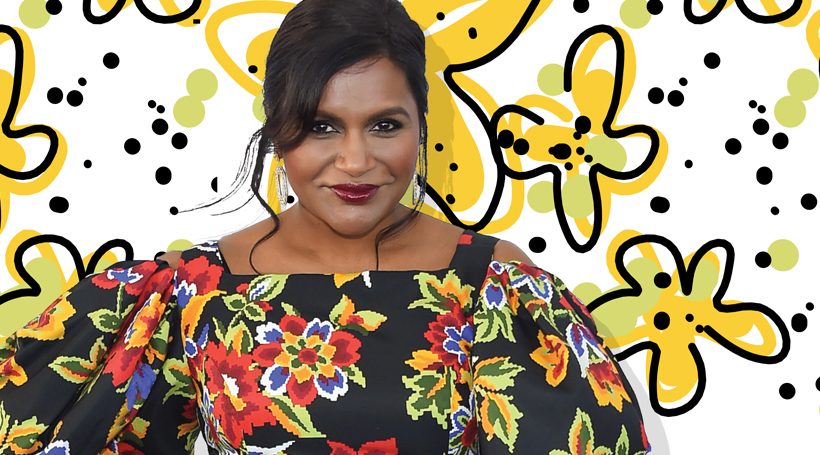The very funny (yet very relatable) Mindy Kaling will produce and star in an adaptation of local author Jennifer Weiner’s first novel for HBO Max. For the former Philadelphia Inquirer reporter turned author, there’s no better person to bring to life the main character of her best-selling book. For Kaling, the story of that main character pretty much sums up her life. So what we will soon see on screen could be pretty magical – at least for anyone who has experienced relationship problems, body-image issues, career setbacks or parenting doubts. So…for all of us.
Mindy Kaling is an actual person. That’s not to say other very famous people aren’t. Of course they are – but usually in the places the rest of us can’t see, when the cameras aren’t rolling.
But on camera or off, Mindy Kaling is, unabashedly, herself. She’s us, too. That is to say – she’s so deeply relatable that passages in her books and on her Twitter feel like any of us could have written them. She’s hilariously self-deprecating, refreshingly honest about the challenges of parenthood, and forthcoming about her lifelong battle with insecurity and body image issues. It’s just who she is, and it’s who many of her iconic television characters seem to be, too: as Kelly Kapoor on “The Office” and Mindy Lahiri on “The Mindy Project,” Kaling brought loud, funny, smart, flawed, insecure and multi-dimensional women to life.

Jennifer Weiner
Her next role, then, might seem like a no-brainer. Kaling will produce and star in “Good in Bed,” a film adaptation of bestselling author Jennifer Weiner’s debut novel. Weiner, a former writer for the Philadelphia Inquirer who still lives in Philly, was 28 when she wrote “Good in Bed.” It’s a loosely autobiographical coming of age story: the protagonist, Candace “Cannie” Shapiro, is a Jewish journalist in Philadelphia grappling with relationship troubles, body image issues, a challenging career and impending parenthood.
 “I’d just gotten dumped, like horrible sickening heartbreak,” Weiner says. “I started writing it to get out of that bad place, and it was just pure wish fulfillment: She’s gonna look like me, the guy will be an asshole, then she’ll get her happy ending.”
“I’d just gotten dumped, like horrible sickening heartbreak,” Weiner says. “I started writing it to get out of that bad place, and it was just pure wish fulfillment: She’s gonna look like me, the guy will be an asshole, then she’ll get her happy ending.”
Cannie has an unstoppable career drive, a sarcastic wit and a plus-size body – a character trait that felt natural for Weiner to include.
“I’m 50 years old. I was born in 1970. And I grew up with Charlie’s Angels,” she says. “You could be a thin blonde, a thin brunette, or a thin, slightly lighter-haired brunette. There was not great variety in representation on TV or in movies, or even in books. I think there’s still something of a void out there in terms of diversity of body types and who gets to be the main character and who gets to have the happy ending.” Weiner’s novel was an instant hit and lauded by critics for its fast-moving plot, its poignancy, and its unorthodox main character. That last bit always seemed odd to Weiner. “It shouldn’t be radical,” she says. “Having a woman in a size 16 body have fulfilling, wonderful sex and men who love her – that happens in the world. That happens a lot.”
Kaling has long been an advocate for diverse representation in film and television, and a bastion of body positivity.
“If someone called me chubby, it would no longer be something that kept me up late at night. Being called fat is not like being called stupid or unfunny, which is the worst thing you could ever say to me,” she writes in her debut memoir, “Is Everyone Hanging Out Without Me? (And Other Concerns).” Do I sometimes look at Gisele Bundchen and wonder how awesome life would be if I never had to wear Spanx? Duh, of course. But on the list of things I want to do in my lifetime, that’s not near the top.”

Mindy Kaling on the cover of Vogue India
But that doesn’t mean she doesn’t get insecure. Again, she’s just like the rest of us, and not afraid to say so.
“I was so excited to be asked to be the cover of Vogue India’s December issue,” the mother of 2 posted on Instagram late last year, “but seriously nervous because I would have to shoot it 6 weeks after giving birth to my son Spencer. I was not feeling body confident, and even considered saying no.”
That cover, of course, was well-received by the public, with Kaling looking every bit the glowing, perfectly coiffed superstar. It’s easy, watching Kaling dominate a room, a screen or a magazine cover, to forget that she stands out from other women with her caliber of celebrity. But in the throng of whippet-thin, mostly white women who dominate the Hollywood ranks, Kaling is a revolutionary.
Weiner’s one, too. And 20 years after “Good in Bed,” she’s still shaking things up.
“It’s like being on a tightrope – if you start looking down you never get to the other side,” she says. “It wasn’t until I began talking to agents and publishers that I realized they were treating that book like it’s radical. I was like well, shit, I needed this story. And I don’t think I’m the only one who needs it. The book I needed as a teenager and a young woman that might have given me more confidence or had me feeling better about myself, that didn’t exist, so I wrote it, and then I wrote it again and again.”
In the last 2 decades, Weiner’s become “sort of almost a book-a-year person,” churning out 13 subsequent novels, a handful of short stories and a memoir, for good measure. Her newest book is “That Summer,” a follow-up to 2020’s bestseller “Big Summer.”
“I’m envisioning ‘That Summer’ as the second book in a Cape Cod trilogy. The next one is ‘Last Summer,’ and then I’m done with summer forever,” Weiner jokes. The newest release is set in both Cape Cod and closer to home, on Philadelphia’s Main Line. “It’s about 2 women who have almost the same email address,” Weiner says. “They’re both named Diana, though one goes by Daisy. She starts getting emails meant for the other Diana.”
Much drama ensues, and things get emotional, but “That Summer,” like the rest of Weiner’s books, comes to a requisite happy ending.
“There’s enough sadness and misery and ambiguity in real life,” she says. “I feel like I want my fiction to be an escape. Plus, I love these women that I create and spend a year of my life with. It would be very hard for me to imagine not leaving them in a good place.”
With the movie adaptation of “Good in Bed,” Weiner will get to know her very first leading lady all over again.
“I got a call that was like, ‘How would you feel if…’ and I said amazing, that would be amazing! I think once Mindy gets into character it’ll just be a smashing adaptation.” Weiner’s not involved in the movie’s production, but she’s thrilled to see her creation in such capable hands.
“I think the best adaptations are the ones where the author just recognizes that visual storytelling is a different medium. It’ll be their story to tell,” Weiner says. “I’m very happy to sit back and send them all my good wishes. I have read the script and it’s amazing. Liz Sarnoff, who adapted it, is an amazing TV writer. She just got it in such a great way. I definitely think it is very much a 2021 adaptation of a 2001 novel.”
Cannie and her story are just as important now as they were then, she adds, and Weiner is eager to see the film’s impact on her daughters Lucy, 18, and Phoebe, 13.
“People are always asking if I feel it’s gotten better in terms of the characters we see and how plus-size women are represented in pop culture,” she says. “And on the one hand, there’s Lizzo. On the other hand, my daughters are on TikTok. And there’s a ton of body positive stuff out there. But there’s also a lot of hate and trolls and horrific people in the comments, and it just sometimes feels like it’s always this dance of one step forward, two steps back. No one person or one book or television show has the power to make it all ok,” she adds, “but I really would like to be part of the effort, and part of the forward progress. When I’m looking back at my career, I want to be able to say the stories I told helped make it better. And for my daughters, my granddaughters – that the world they inhabit is nicer to them than it was to me.”
Every one of Weiner’s books, with their plus-sized, nuanced female leads, will move that needle. So will Kaling’s projects, because of their diverse casts, female-driven narratives and characters that real women can relate to. And when we meet Kaling’s version of Cannie, she’ll be someone we recognize: a person who really has much more important things to worry about than her weight. A person like the rest of us. A person like Kaling.
“Though I am a generally happy person who feels comfortable in my skin, I do beat myself up because I am influenced by a societal pressure to be thin. All the time,” Kaling writes in her second book, “Why Not Me?”
“I feel it when I wake up in the morning and try on every single pair of my jeans and everything looks bad and I just want to go back to sleep. But my secret is: even though I wish I could be thin, and that I could have the ease of lifestyle that I associate with being thin, I don’t wish for it with all of my heart. Because my heart is reserved for way more important things.”
And in her heart, Kaling is who she’s always been – just a little more well-known.
“I’m a role model now,” she writes. “I want to be a better person because I don’t want to disappoint those girls. I stop and think about my actions more. I tip great, I try not to swear too much, and I remember to thank people and be grateful. And all that stuff I do to ‘appear’ better has actually made me a better person. I wish I had always acted like I was a little bit famous.”














